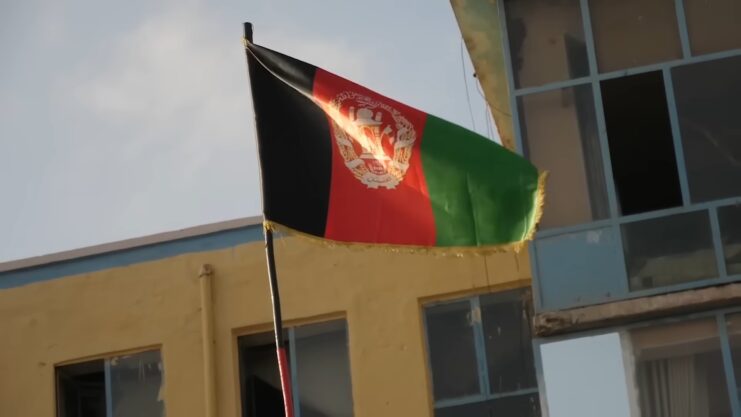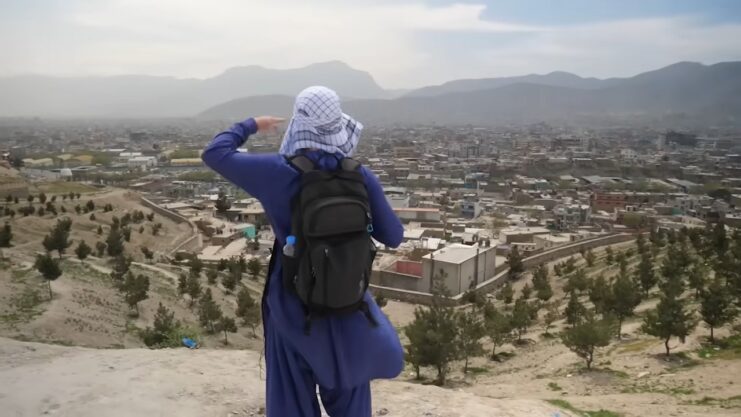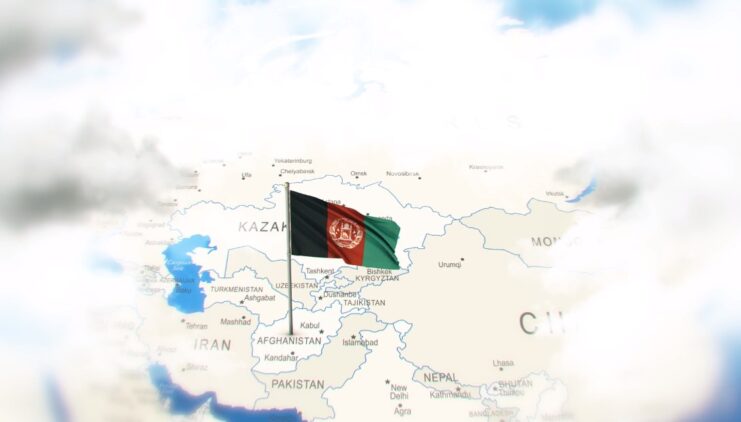Land ownership in Afghanistan has been debated extensively in recent years. While under the Afghan Constitution, the right of ownership of land is vested in the Afghan Government, there are a variety of ways for individuals and organizations to acquire or lease land for various purposes.
In this article, we will be discussing these options as well as what it means for Americans to buy land in Afghanistan.
Types of land ownership

In Afghanistan, land that is owned by private individuals is known as “mirab”. In addition to individual mirab ownership, there is also collective mirab-shared ownership and public property. Collective mirab-shared ownership involves multiple individuals or families that jointly own a parcel of land, rather than it being owned by one individual or family. Public property includes state-owned land, communal grazing areas, and religious sites.
Non-Muslims do not generally have the right to purchase real estate in Afghanistan due to Islamic Shariah law; however, there are certain exceptions for reputable organizations or foreign embassies.
In some cases, Afghans may be able to rent or lease land from the government for specific purposes such as farming or construction projects. Businesses typically need permission from the Ministry of Agriculture before they are able to lease or buy agrarian land.
When it comes to urban areas, businesses will usually obtain a special lease agreement with government approval beforehand. However, non-Muslims generally cannot buy urban land outright in Afghanistan even with approval because it is considered a violation of Islamic Shariah law which applies both inside and outside their country’s international borders when pertaining to real estate transactions involving non-Muslims.
Regulations governing land ownership

Under the Land Management Law of 2007, the national government of Afghanistan regulates the ownership and transfer of land in the country. The law aims to create a framework for equitable land management by balancing individual and collective rights, modernizing legal regulations, improving public access to information on land registration, protecting the significant environment from development activities, and promoting women’s rights.
The legal framework also covers two separate kinds of land ownership: private property that is owned by individuals or legal entities (including corporations); and state-owned property controlled by the Afghan government. Regulations governing private property allow citizens of Afghanistan to own land either individually or through a partnership with other parties.
These regulations also permit foreigners to obtain ownership rights over a limited number of parcels in special cases; however, foreign citizens are not allowed to register titles over landholdings exceeding 7 hectares (17.3 acres). Furthermore, a foreign investor can only buy and hold agricultural property under certain conditions as prescribed by law.
Regarding state-owned properties, official rules restrict transfer and disposal operations except for public purposes authorized by ministries or support agencies that have ownership rights over parcels purchased from individuals or through expropriation processes.
American Investment in Afghanistan

With the increasing interest of American companies in the global economy, many are asking if Americans can buy land in Afghanistan.
This section will take a look at the various aspects of American investment in Afghanistan, including the legal ramifications and the opportunities that this may provide.
US government involvement
The United States has provided more than 107 billion dollars in aid to Afghanistan since the 2001 invasion. A significant portion of this aid was allocated to enhance the Afghan economy, including investments in infrastructure, agriculture, and jobs. Much of this money was targeted to raise incomes and living standards.
The USAID (U.S. Agency for International Development) has been heavily involved in providing investment opportunities in Afghanistan since 2002, primarily through programs such as the Afghanistan Reconstruction Trust Fund (ARTF), which is a joint effort between the government of Afghanistan and international donors overseen by the World Bank.
The US government also works with other organizations such as the Overseas Private Investment Corporation (OPIC) and Export-Import Bank (Ex-Im) to provide financing for businesses seeking to invest in Afghanistan. OPIC offers financing and political risk insurance for American businesses investing in developing countries, while Ex-Im provides short-term and long-term loans or loan guarantees to foreign buyers of US exports.
Finally, the US Agency for Global Media works with international media partners to help promote Afghan culture and economic development by sharing stories about success stories from local entrepreneurs and innovators doing business or investing in Afghanistan. By helping promote positive stories from within the country, US agencies are working towards increasing investment opportunities for Americans interested in buying land or businesses within Afghanistan’s borders.
Private American investment

Under the current laws in Afghanistan, non-Afghan nationals are not allowed to own land. However, there are certain regulations that allow private American investment in the country. These investments involve purchasing rights to a property or piece of land instead of owning it outright. This type of investment is generally done through a representative of an Afghan corporation and is subject to local and national regulations as well as applicable international trade agreements.
Investments can be made in many types of industries including agriculture, tourism, consulting services, and transportation projects – all of which are subject to oversight by the Afghan National Investment Authority (ANIAR). Additionally, investors may need to obtain special permits depending on the type of business they wish to undertake. As with any business venture, it’s always best to consult with legal experts in order to ensure compliance with local laws and regulations.
It should also be noted that U.S.-based businesses wishing to do business in Afghanistan must register with the State Department’s Office of Foreign Assets Control (OFAC). This office is responsible for overseeing foreign assets from both public and private sources. The OFAC ensures that these assets are managed properly and used according to applicable rules and regulations set forth by the U.S. government for conducting private investment activities abroad.
Potential for American Land Ownership

Americans may have the potential to own property in Afghanistan, but there are several factors to consider before making the purchase. It is important to research the laws and regulations governing land ownership and understand the economic, political, and social conditions of the country.
This section will explore the potential for American land ownership in Afghanistan, including the benefits and risks involved.
Restrictions on foreign land ownership
Every country has different laws regarding how foreign nationals can acquire, own and use land. In Afghanistan, the foreign ownership or transfer of land or any type of real estate property is prohibited. Any leases or sales entered into by a foreigner or foreign organization are not valid and cannot be accepted by Afghan courts as binding legal contracts.
In addition, permission to develop or utilize a plot of land must be given by the municipality responsible for that area. As a result, it is not possible for American citizens to buy, own or develop land in Afghanistan.
Options for American land ownership
Although Afghanistan is a sovereign nation and its laws apply to any potential land ownership actions, there are options available that may enable an American to buy land in Afghanistan. It is important to note, however, that the purchase of land must comply with local laws and regulations. Additionally, due to the complex political situation in Afghanistan, the process may be more complicated than normal transactions.
One potential option is to work through established real estate markets such as local or international companies and brokers. Doing so can provide access to resources that make the purchase of property easier, but also ensures compliance with local laws and regulations. The buyer should ensure that all necessary paperwork is completed thoroughly and properly before any transaction takes place in order for a successful property purchase. Furthermore, will likely be required for authenticity and verification purposes when processing closing documents.
Another option includes engaging in deals directly with an Afghan land owner who may wish to avoid property taxes or inheritance issues – this approach may require special negotiation between parties involved for both legal reasons as well as getting a desired purchase price for the actual land. The buyer must also be aware of any restrictions which may apply when purchasing certain types of lands due to their use (i.e., agricultural plots versus building plots).
It is important to consult with a legal professional before any decisions are made regarding potential land ownership opportunities within Afghanistan in order to protect one’s interests and ensure proper legal processes are followed accurately.
FAQs

What are the benefits of buying land in Afghanistan as an American?
The benefits of buying land in Afghanistan as an American may include investment opportunities, the potential for property value appreciation, and contribution to the development of the country.
Can Americans buy agricultural land in Afghanistan?
Yes, Americans can buy agricultural land in it, subject to Afghan property laws and regulations.
What are the taxes associated with buying land in Afghanistan as an American?
The taxes associated with buying land in it as an American may include property tax and capital gains tax, subject to Afghan tax laws and regulations.
What kind of property is available for Americans to buy in Afghanistan?
Americans can buy a range of properties in this country, including residential, commercial, and agricultural properties.
Can Americans sell their property in Afghanistan?
Yes, Americans can sell their property in this country, subject to Afghan property laws and regulations.
Can Americans build on their property in Afghanistan?
Yes, Americans can build on their property in it, subject to Afghan building codes and regulations.
Is it recommended that Americans buy land in Afghanistan?
It is not due to ongoing security challenges, political instability, and potential legal challenges. Americans should consult with legal and security experts before considering any investments in Afghanistan.
Conclusion
From our research, it appears that while it is technically legal for a foreigner to purchase land in Afghanistan, it is extremely complicated and there are many bureaucratic and cultural obstacles that would need to be navigated. Therefore, while it is not impossible, purchasing land in Afghanistan is a very difficult and time-consuming task.

